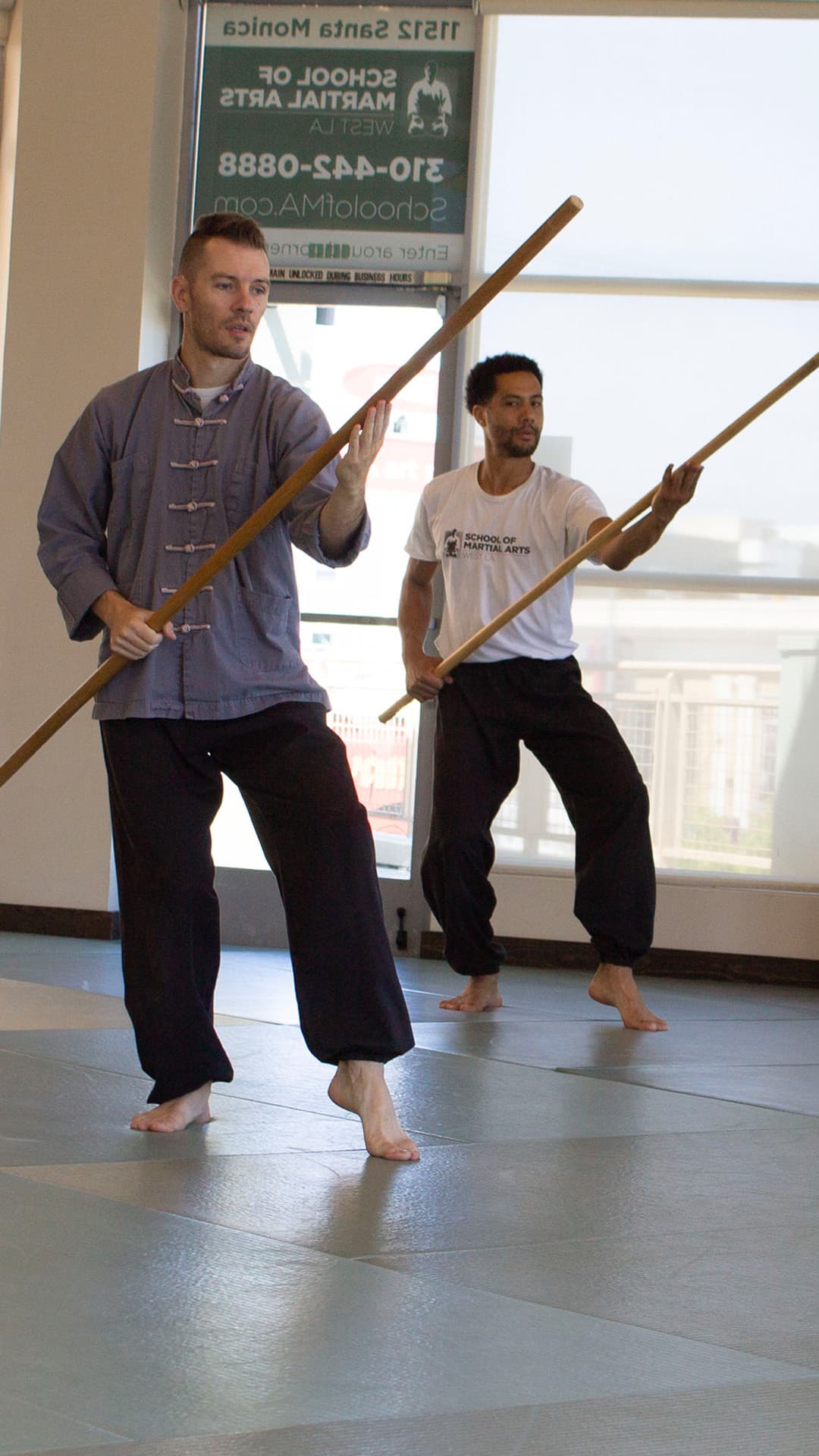
Last weekend we had our annual Internal Retreat at Mt. Baldy Zen Center. We had an amazing time practicing Tai Chi and meditating in nature. Here are some of the lessons that stand out for me.
Silence at the Internal Retreat
This year at out Internal Retreat we did 24 hours of silence starting Friday night and lasting until dinner on Saturday. Most people on Internal Retreat dreaded being in total silence. Some even struggled for the first few hours, but we all came to love it. By the end, we were truly feeling at peace. There is something profoundly powerful about silence. The longer we are in it, the more powerful and lasting the impact. Our minds calm as we let go of incessant noise both external and internal. In an ideal world we are able to be calm and have a clear mind under any circumstances. Practically speaking though, we are much more likely to do so in a q uiet environment. There are many ways to introduce silence into your life. You don’t have to travel or set aside an entire weekend. Try driving without listening to a podcast or the radio. Try turning off the TV and your cellphone an hour earlier before bed. Go for a walk and just be. Meditate!
As a teacher, I am particularly drawn to the challenges and benefits of communicating while silent. Now, I certainly love to hear my self talk, and some things are simply easier to communicate through words! However, the truth is, language can be limiting. If I ONLY verbally articulate how to move your body for a Tai Chi posture, a throw in Martial Arts or a submission in Brazilian Jiu Jitsu, you would likely be quite lost. When I show you, you will likely have most of what you need to start practicing. If I highlight a few details by explaining the technique, you will often get even more. This is why I usually speak while teaching. The only problem with talking is it takes your attention away from what you are able to observe. Your mind may become lazy, only picking up the details that I explain. Ignoring the other 99% of what is happening. I’m not saying you should ignore what I say, but train your mind to observe the whole of what is happening, taking in information through all senses.
Priorities
On the first night of our Internal Retreat I read a small section from The Alchemist by Paulo Coelho.
A merchant sent his son to learn the Secret of Happiness from the wisest of men. The young man wandered through the desert for forty days until he reached a beautiful castle at the top of a mountain. There lived the sage that the young man was looking for.
However, instead of finding a holy man, our hero entered a room and saw a great deal of activity; merchants coming and going, people chatting in the corners, a small orchestra playing sweet melodies, and there was a table laden with the most delectable dishes of that part of the world.
The wise man talked to everybody, and the young man had to wait for two hours until it was time for his audience.
The Sage listened attentively to the reason for the boy’s visit, but told him that at that moment he did not have the time to explain to him the Secret of Happiness.
He suggested that the young man take a stroll around his palace and come back in two hours’ time.
“However, I want to ask you a favor,” he added, handling the boy a teaspoon, in which he poured two drops of oil. “While you walk, carry this spoon and don’t let the oil spill.”
The young man began to climb up and down the palace staircases, always keeping his eyes fixed on the spoon. At the end of two hours he returned to the presence of the wise man.
“So,” asked the sage, “did you see the Persian tapestries hanging in my dining room? Did you see the garden that the Master of Gardeners took ten years to create? Did you notice the beautiful parchments in my library?”
Embarrassed, the young man confessed that he had seen nothing. His only concern was not to spill the drops of oil that the wise man had entrusted to him.
“So, go back and see the wonders of my world,” said the wise man. “You can’t trust a man if you don’t know his house.”
Now more at ease, the young man took the spoon and strolled again through the palace, this time paying attention to all the works of art that hung from the ceiling and walls.
He saw the gardens, the mountains all around the palace, the delicacy of the flowers, the taste with which each work of art was placed in its niche. Returning to the sage, he reported in detail all that he had seen.
“But where are the two drops of oil that I entrusted to you?” asked the sage.
Looking down at the spoon, the young man realized that he had spilled the oil.
“Well, that is the only advice I have to give you,” said the sage of sages.
“The Secret of Happiness lies in looking at all the wonders of the world and never forgetting the two drops of oil in the spoon.”
On our Internal Retreat we set up two bowls of water and presented everyone with a spoon. Every time we walked between the zendo (meditation hall) and the mess hall, we took a spoon full of water (more challenging than two drops of oil) with us. Mindfully, we carried it with the intention of not spilling a drop. Most of us were successful. Walking with the intention of taking in all the beauty of the world around us, whether it be the tall trees, the mountains in the distance or even the stars at night. This balance between focusing outward and inward is crucial. If we are unable to focus on our internal environment through meditation or introspection, we are lost. Similarly, if we become self-obsessed and are unaware of our surroundings and what is going on with the people in our lives, we are lost.
Happiness is possible for us all if we take the time and spend the energy to be with ourselves and the outer world. Silence is a great tool especially for those who find themselves caught up in external distractions, but it can also help those of us who are internally focused to be present for the world we are in.



